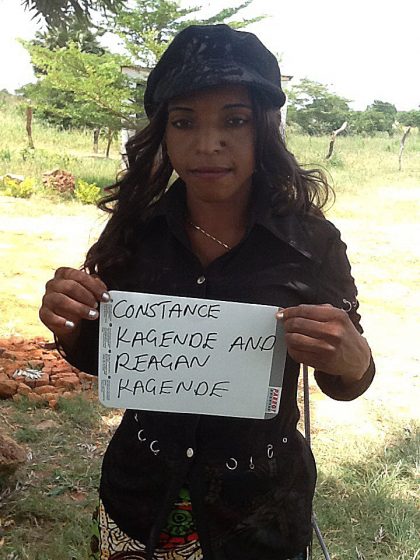By James Luhana, Manager – Inclusive Business and Tidzitwa Zulu Ilubala, Gender and Rural Markets
Manager
Constance Kangende is a single parent living in Mwachisompola village, in Chibombo district, 83 km east of the Zambian capital Lusaka.
To meet the needs of her two children, the 30-year old depended on farming on the small piece of land she had inherited from her parents. But one day, she was shocked to find out that a church organisation had taken part of the land fora project without her knowledge. Efforts to retrain the church from encroaching on the land proved difficult even after reporting the case to the traditional council.
“I was losing the battle because I had no document whatsoever to show that this piece of land belonged to me,” Kangende said, adding that the dispute forced her to halt plans to double the area of land cultivated to 3 hectares.
She was able to regain use of the land after she obtained a land certificate, otherwise known as a ParcelCert, with the help of Medeem Zambia Limited, a company that works to make the land rights documentation process more affordable and accessible by everyone, including women and smallholder farmers occupying customary land.
In 2014, Musika provided Medeem with both logistical and technical assistance in scaling up its operations to the ”lower end’ of the market in chiefdoms located in Southern, Central and Lusaka Provinces.
To date, Medeem has issued over 465 ParcelCerts in Chief Liteta’s Chiefdom, of which 111 are women.
Chief Liteta has been instrumental in facilitating Medeem’s operations and ensuring that his subjects such as Kangende own land that is properly documented.
Kangende’s plight is a common one in Zambia, although she was more fortunate than most other women.
Many never regain access or rights to matrimonial land lost after divorce or the death of a spouse.
In the rural areas, most land is under a traditional or “customary” tenure system where women’s direct access to land through purchase or inheritance is often limited.
There are usually customary provisions for indirect access to land in terms of use rights acquired through kinship relationships and their status as wives, mothers, sisters, or daughters. These use rights, however, may not grant enough security for women and other dependents when traditional family structures dissolve.
Through labour mobility, divorce, separation, or death, an increasing number of women are becoming the heads of households. They are thus making many of the day-today decisions affecting shelter, food production, and household economics. Yet only a small proportion of these women hold secure land rights.
Similarly, there are instances where access to land stems from the female line, and in this case male partners and children may be disadvantaged as societies change.








